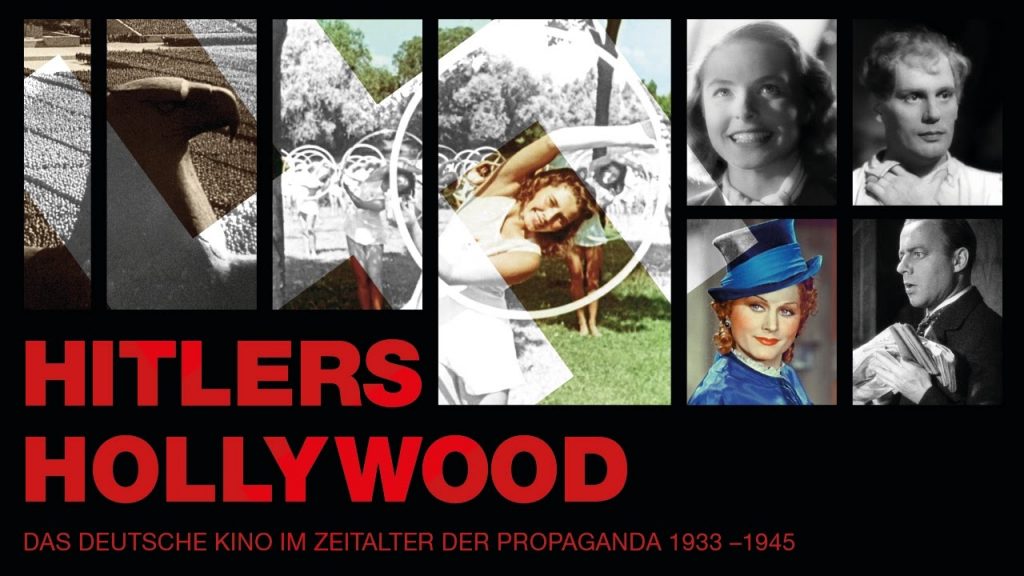With the hype waning and the crowds receding, I finally braved the motion picture industrial complex and saw the new Avengers Infinity Wars movie.
It certainly delivered everything I wanted in a big budget action fantasy movie — no complaints. But after spending all that money for a reclining seat in a movie theater where the popcorn sales are probably 47 percent of Slovenia’s GDP, and consuming pop culture at its zenith, I felt a little empty.
For as well done as these Marvel movies are, and as much pleasure my entire family gets from them, after watching the latest installment, I had a need to seek out something with more meat on its bones, cinematically speaking. I found it in the new release of a German documentary called, “Hitler’s Hollywood.”
They had me at the title, but this film, with about 1/800th of the budget of the Avengers, is a powerful tour through the first half of the last century that continues to haunt us. Nazi Germany is the human traffic accident we all can’t seem to take our eyes off, and this new film about the old regime sheds light on the past and the present as well.
The title comes from the fact that during the not brief enough lifespan of the Third Reich, 1933—1945, the German film industry produced more than 1,000 movies. That’s a lot, even by Hollywood standards, and like Hollywood, these films ran the gamut from detective stories to romances and comedies, from big budget spectacles to small personal films.
Interestingly, according to the documentary, the Germans made no horror or monster movies during this time — the monsters in control, most notably Minister of Propaganda Josef Goebbels, were more interested in painting colorful imagery of Nordic purity and the dastardly acts of evil Jewish manipulators and evil capitalists.
There was also a distinct absence of religious films, which should come as no surprise. The Third Reich had its own religion, its own symbols and its own jack-booted high priesthood, all congregating under its own cross, twisted and bent into a seemingly everlasting metaphor of human evil.
But although there seemed to be plentiful examples of the glories of National Socialism and all its symbolization, as the documentary travelled deeper into the twisted world of the Third Reich, an overriding theme became abundantly clear in so many of the films it sponsored. It didn’t matter if the movie was a romance, an epic saga or a costume drama, death was many times the leading man.
And when I say death, it is not in the sense that many of the main characters in these more than a thousand movies pay the ultimate price within their various story arcs, it is that death in and of itself is portrayed time and time again as something noble, preferable and a thing devoutly to be wished.
You won’t find this kind of death cult mentality in propaganda films that were being made by Hollywood at the same time.
Before anyone goes off the deep end, I am not equating the evil of Josef Goebbels and his propaganda machine to Warner Brothers and Bugs Bunny.
But during World War II, both sides saw the power in the cinematic image to inspire its populations. Both sides obviously embellished and shaded the truth, but that is not to suggest that there was an inkling of moral equivalence between the Third Reich and the Allies.
As the Reich descended into its death throws in 1944 and 1945, its cinema got more grandiose and more fixated on the “good” death in an orgy of nihilism. To Christians, especially Christian artists and Christian film makers, death is a strong subject to engage, but it only has true meaning when tied to the cross and the paschal sacrifice. When it is fastened like barbed wire to a bent and crooked cross it is just…well, death.
But before we start feeling oh so good about ourselves and how unlike we are to a Germany that is almost turning into an abstract, we might do well to observe how our own motion picture industry and popular culture is dealing with death.
There may not be a minister of propaganda here, but there are plenty of studio executives and creators perfectly comfortable with romanticizing suicide in films. And just recently, a 100-year-old scientist “tired of living” very publicly traveled to Switzerland where he was very publicly injected with a voluntary lethal dose of drugs — it played out on TV like a reality show.
Maybe Goebbels is looking up and wishing he had thought of that.

